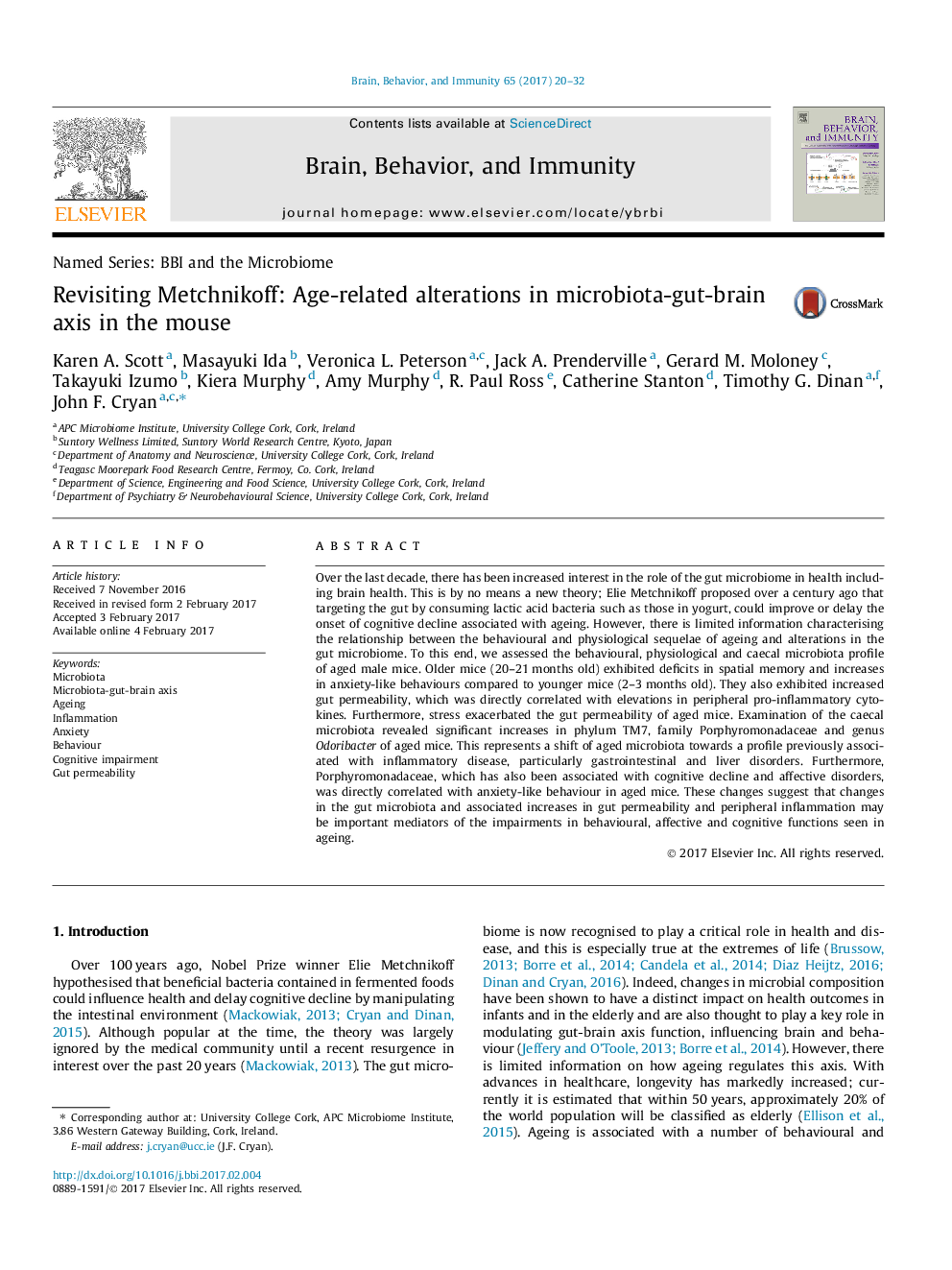| کد مقاله | کد نشریه | سال انتشار | مقاله انگلیسی | نسخه تمام متن |
|---|---|---|---|---|
| 5040578 | 1473902 | 2017 | 13 صفحه PDF | دانلود رایگان |

- The behaviour, physiology and microbiota of young and aged male mice were compared.
- Aged mice exhibit cognitive impairments and increased anxiety-like behaviour.
- Gut permeability is increased in aged mice and exacerbated by acute stress exposure.
- Gut permeability positively correlates with proinflammatory cytokines in plasma.
- Microbial taxa linked to inflammation and cognitive decline are higher in aged mice.
- Abundance of Porphyromonadacea in aged mice correlates with anxiety-like behaviour.
Over the last decade, there has been increased interest in the role of the gut microbiome in health including brain health. This is by no means a new theory; Elie Metchnikoff proposed over a century ago that targeting the gut by consuming lactic acid bacteria such as those in yogurt, could improve or delay the onset of cognitive decline associated with ageing. However, there is limited information characterising the relationship between the behavioural and physiological sequelae of ageing and alterations in the gut microbiome. To this end, we assessed the behavioural, physiological and caecal microbiota profile of aged male mice. Older mice (20-21Â months old) exhibited deficits in spatial memory and increases in anxiety-like behaviours compared to younger mice (2-3Â months old). They also exhibited increased gut permeability, which was directly correlated with elevations in peripheral pro-inflammatory cytokines. Furthermore, stress exacerbated the gut permeability of aged mice. Examination of the caecal microbiota revealed significant increases in phylum TM7, family Porphyromonadaceae and genus Odoribacter of aged mice. This represents a shift of aged microbiota towards a profile previously associated with inflammatory disease, particularly gastrointestinal and liver disorders. Furthermore, Porphyromonadaceae, which has also been associated with cognitive decline and affective disorders, was directly correlated with anxiety-like behaviour in aged mice. These changes suggest that changes in the gut microbiota and associated increases in gut permeability and peripheral inflammation may be important mediators of the impairments in behavioural, affective and cognitive functions seen in ageing.
Journal: Brain, Behavior, and Immunity - Volume 65, October 2017, Pages 20-32